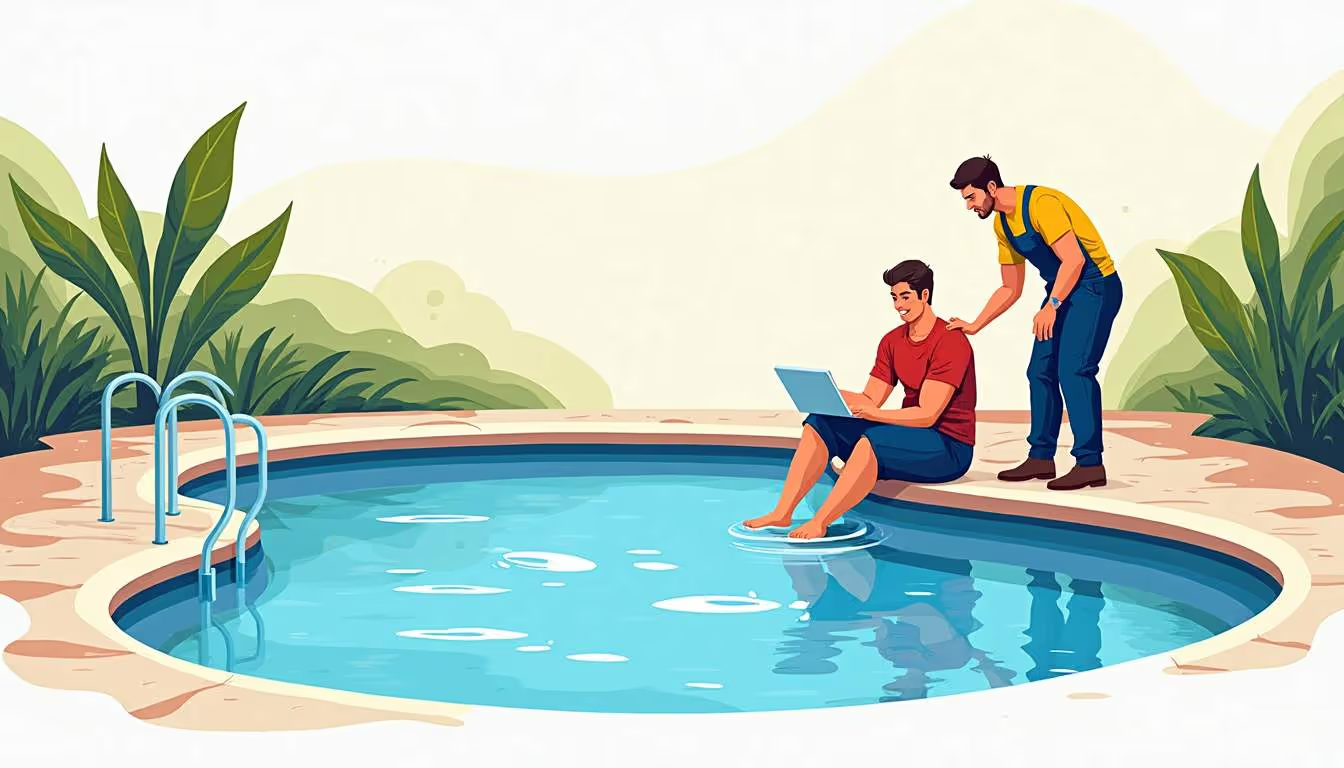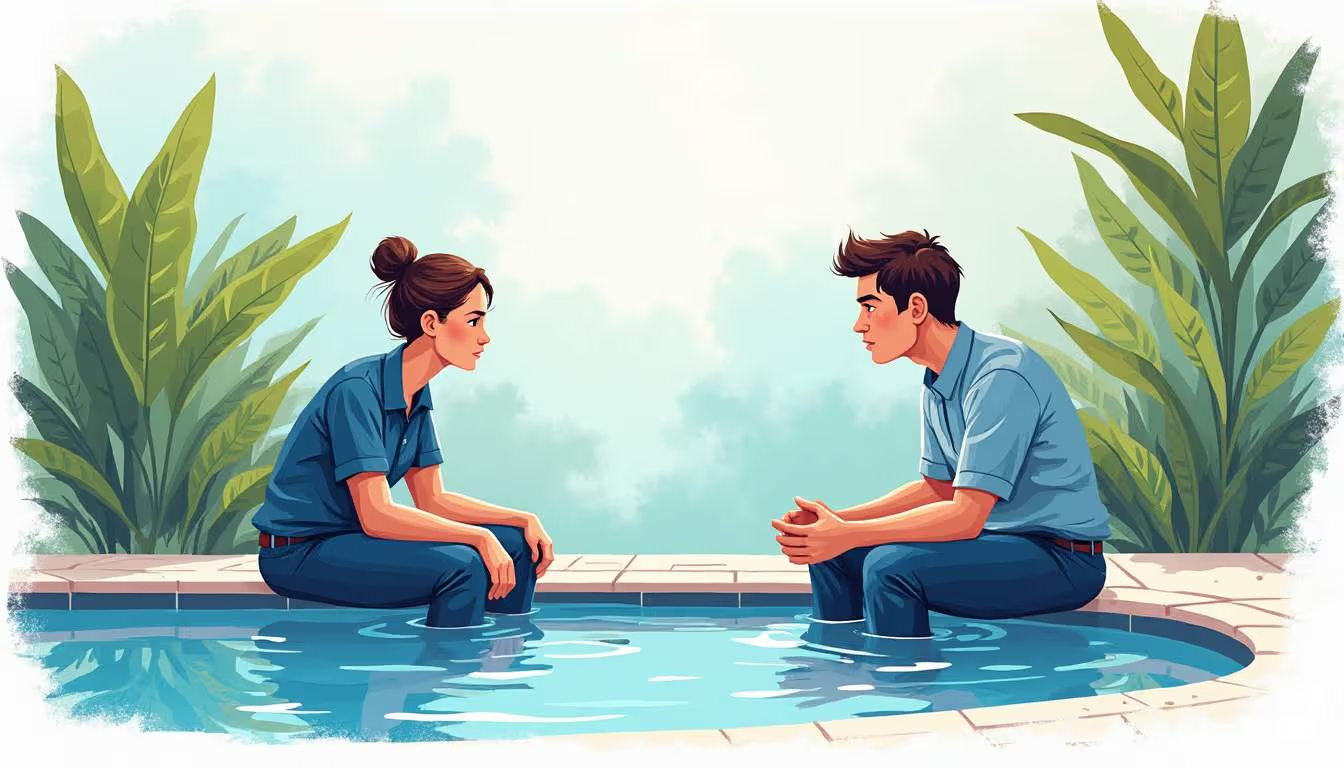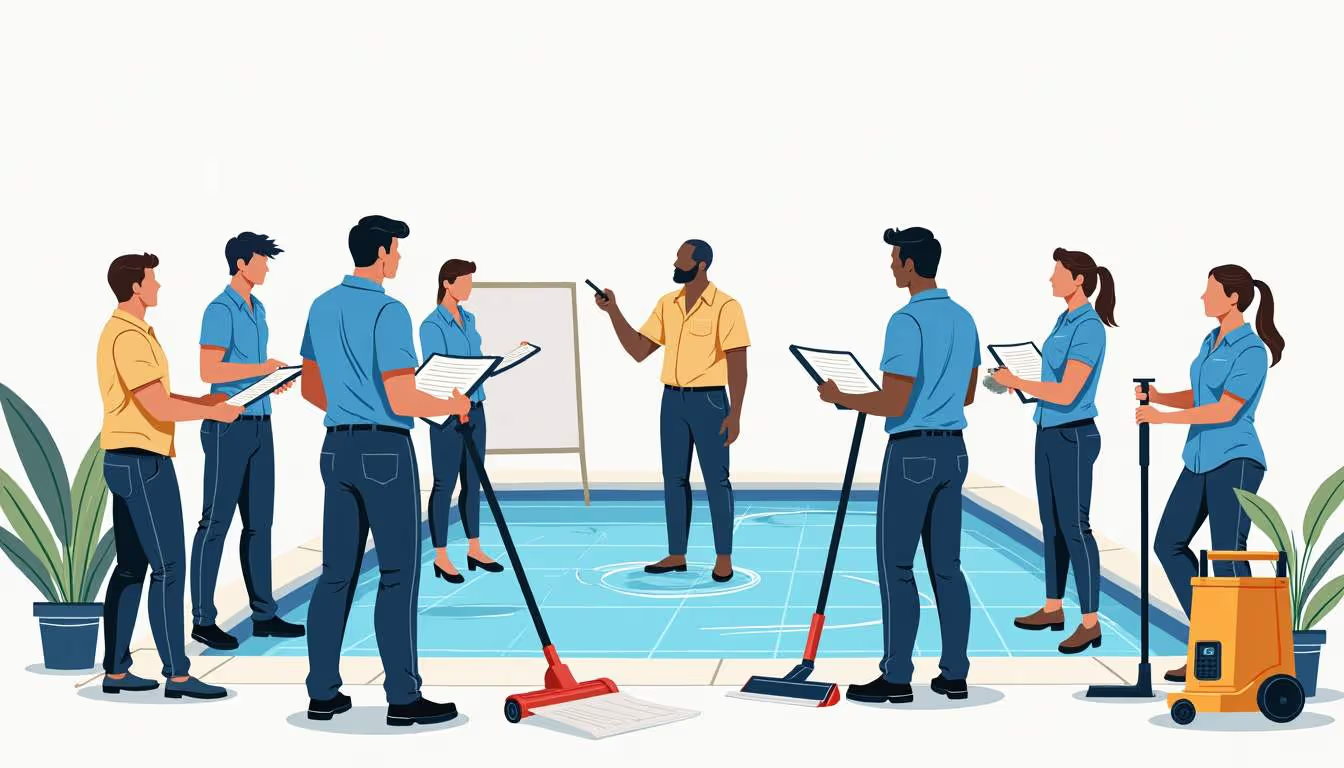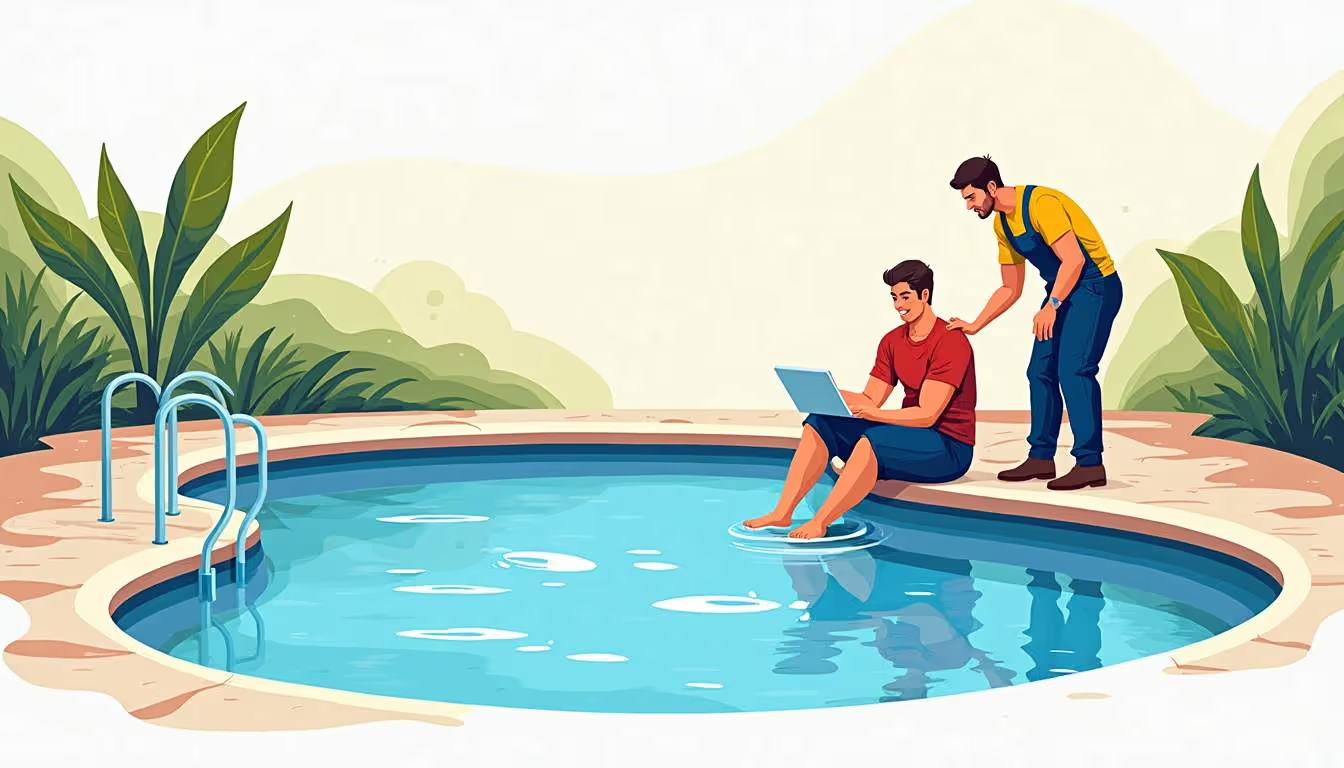How Pool Service Technicians Can Interact Effectively With Customers
The Importance of Customer Interaction in Pool Services
In the pool service industry, effective customer interaction is not just a nicety; it’s a necessity. Pool service technicians are often the face of a company, representing its values and professionalism. When technicians engage with customers, they have the opportunity to build trust, foster relationships, and enhance customer satisfaction. This interaction can significantly influence customer retention and referrals, which are vital for business growth. In an industry where word-of-mouth can make or break a business, the ability to connect with customers on a personal level can lead to a loyal client base that not only returns for future services but also recommends the company to friends and family.
Moreover, the nature of pool service work often requires technicians to explain complex issues in a way that customers can understand. Whether it’s discussing maintenance schedules, repair needs, or seasonal preparations, clear communication is essential. A technician's ability to convey information effectively can greatly impact the customer's perception of the service provided. For instance, when a technician takes the time to walk a customer through the steps of a pool cleaning process or explains the importance of regular maintenance, it not only educates the customer but also empowers them to take an active role in the upkeep of their pool. This educational aspect can transform a routine service call into a valuable learning experience for the customer.
Building Trust Through Communication
Trust is the cornerstone of any successful customer relationship. Technicians can build trust by being transparent about the services they provide. This includes discussing the scope of work, pricing, and any potential issues that may arise. When customers feel informed, they are more likely to trust the technician's expertise. Additionally, providing customers with a clear timeline for service completion and following through on commitments can further enhance this trust. Customers appreciate knowing when to expect their service to be completed, and this reliability can set a company apart in a competitive market.
Active listening is another critical component of effective communication. Technicians should take the time to listen to customer concerns and questions. By demonstrating that they value the customer's input, technicians can create a more collaborative atmosphere, which can lead to better service outcomes. Encouraging customers to share their experiences and preferences can also provide technicians with valuable insights that can improve service delivery. For example, if a customer mentions a recurring issue with their pool equipment, the technician can take proactive steps to address it, showcasing their commitment to customer satisfaction and reinforcing the relationship.
Personalizing the Customer Experience
Every customer is unique, and personalizing interactions can significantly enhance their experience. Technicians should take note of individual customer preferences, such as preferred communication methods or specific pool features that require attention. By tailoring their approach, technicians can make customers feel valued and understood. This personalization can extend beyond just service details; it can include remembering special occasions, such as a customer’s pool party or anniversary, and acknowledging them during interactions. Such gestures can leave a lasting impression and contribute to a positive customer experience.
Additionally, remembering details from previous interactions can go a long way in establishing rapport. A simple acknowledgment of past conversations or follow-up on previous issues can make customers feel appreciated and more likely to engage in future services. Furthermore, sending personalized reminders for seasonal maintenance or special promotions tailored to a customer’s specific needs can enhance engagement. This proactive approach not only demonstrates a technician's dedication to their craft but also reinforces the idea that the company genuinely cares about the customer’s pool and overall satisfaction.
Effective Techniques for Customer Interaction
To maximize the effectiveness of customer interactions, technicians can employ various techniques that enhance communication and service delivery. These techniques not only improve customer satisfaction but also contribute to a more efficient workflow.

Utilizing Technology for Better Communication
In today’s digital age, leveraging technology can greatly improve how technicians interact with customers. Service management software can streamline communication by providing technicians with easy access to customer histories, service records, and preferences. This information allows for more informed discussions and personalized service.
Moreover, utilizing customer relationship management (CRM) tools can help technicians track interactions and follow up on customer inquiries promptly. Automated reminders for service appointments or maintenance checks can also enhance the customer experience by demonstrating proactive service.
Providing Clear and Concise Information
When discussing pool service issues, clarity is paramount. Technicians should avoid jargon and explain technical terms in layman's language. Providing clear, concise information helps customers understand the services being offered and the reasons behind them.
Visual aids can also be beneficial. For example, technicians can use diagrams or photos to illustrate problems and solutions. This visual approach not only aids understanding but also reinforces the technician's expertise.
Encouraging Customer Feedback
Feedback is a valuable tool for improvement. Technicians should encourage customers to share their thoughts on the service provided. This can be done through informal conversations or structured surveys. Understanding customer satisfaction levels can help technicians identify areas for improvement and adapt their service accordingly.
Moreover, responding to feedback—both positive and negative—demonstrates that the company values customer opinions. When customers see their feedback being taken seriously, it fosters a sense of loyalty and trust.
Handling Difficult Situations with Customers
Not all interactions will be smooth sailing. Pool service technicians may encounter challenging situations, such as customer complaints or misunderstandings. How these situations are handled can significantly impact the customer’s perception of the company.

Staying Calm and Professional
In the face of a complaint or difficult conversation, maintaining composure is crucial. Technicians should approach the situation with a calm demeanor, actively listening to the customer’s concerns without becoming defensive. Acknowledging the customer’s feelings and showing empathy can help de-escalate tensions.
It’s important for technicians to remain professional throughout the interaction. Using polite language and maintaining a respectful tone can help preserve the relationship, even in challenging circumstances.
Offering Solutions and Alternatives
When a customer expresses dissatisfaction, technicians should focus on providing solutions. Identifying the root cause of the issue and suggesting actionable steps can demonstrate the technician’s commitment to resolving the problem. Offering alternatives, such as different service options or scheduling adjustments, can also empower the customer and enhance their experience.
In some cases, it may be appropriate to escalate the issue to a supervisor or manager. Technicians should be aware of company policies regarding complaints and know when to involve higher authority to ensure customer satisfaction.
Follow-Up and Building Long-Term Relationships
After the service has been completed, the interaction doesn’t have to end. Following up with customers is an excellent way to reinforce the relationship and ensure continued satisfaction. This step is often overlooked but can make a significant difference in customer loyalty.
Conducting Follow-Up Calls or Messages
Technicians should consider reaching out to customers a few days after service to check on their satisfaction. A simple follow-up call or message can show that the company cares about the customer’s experience. This gesture can also provide an opportunity for customers to voice any lingering concerns or questions.
During follow-up interactions, technicians can also remind customers of upcoming maintenance needs or seasonal preparations. This proactive approach not only adds value but also positions the technician as a trusted advisor.
Creating a Loyalty Program
Implementing a loyalty program can incentivize customers to continue using the service. Technicians can inform customers about any rewards or discounts available for repeat business. This not only encourages loyalty but also fosters a sense of community among customers.
Moreover, a loyalty program can provide technicians with additional opportunities to engage with customers, whether through special events, newsletters, or exclusive offers. These interactions can further solidify the relationship and enhance customer retention.
Training and Development for Technicians
To ensure effective customer interaction, ongoing training and development for technicians is essential. Companies should invest in training programs that focus on communication skills, customer service techniques, and conflict resolution strategies.

Role-Playing Scenarios
Role-playing can be an effective training tool for technicians. Simulating various customer interactions allows technicians to practice their communication skills in a safe environment. This hands-on approach can help them develop confidence and learn how to handle different situations effectively.
In addition to role-playing, training sessions can include discussions on best practices for customer service, as well as sharing experiences among team members. Learning from one another can provide valuable insights and foster a culture of continuous improvement.
Encouraging Self-Reflection
Encouraging technicians to reflect on their interactions with customers can lead to personal growth and development. After each service call, technicians should take a moment to consider what went well and what could be improved. This self-reflection can help them identify areas for growth and enhance their future interactions.
Moreover, creating a feedback loop where technicians can share their experiences and suggestions with management can contribute to a more supportive work environment. When technicians feel heard and valued, they are more likely to be engaged and motivated in their roles.
Conclusion
Effective customer interaction is a cornerstone of success in the pool service industry. By prioritizing communication, personalizing experiences, and handling difficult situations with professionalism, technicians can build lasting relationships with customers. Investing in training and development further equips technicians with the skills necessary to excel in their roles.
Ultimately, when technicians engage with customers thoughtfully and proactively, they not only enhance customer satisfaction but also contribute to the overall success of the business. In a competitive landscape, the ability to connect with customers on a personal level can set a company apart, leading to increased loyalty and growth.








